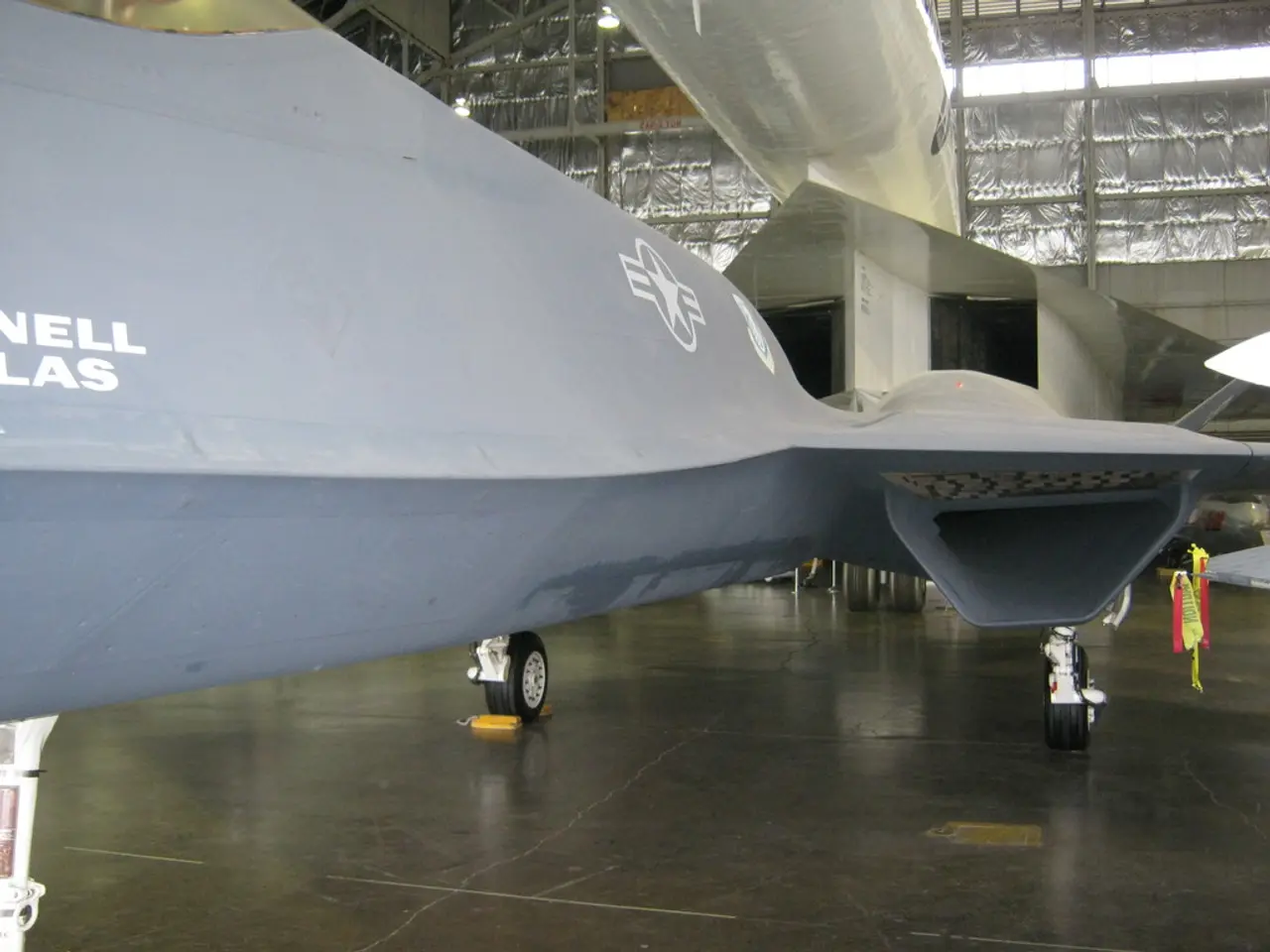Plane pilot apprehended in Sweden following a failed alcohol screening
In a shocking incident that occurred on July 2025, a Delta Air Lines pilot was arrested at Stockholm Arlanda Airport after failing a breathalyzer test. The pilot, a US citizen, had a blood alcohol concentration (BAC) that exceeded the EU limit of 0.02, leading to the cancellation of flight DL 205, which was bound for New York's JFK airport.
This incident highlights the strict alcohol rules for pilots in the European Union (EU), which were introduced to ensure flight safety. The EU's regulations, formalized under Regulation 2018/1042, mandate mandatory random breathalyzer tests for crew in EU airports and enforce strict alcohol limits.
In contrast, in the United States, the Federal Aviation Administration (FAA) has been enforcing alcohol limits and flight restrictions for pilots since the late 20th century. The FAA's rules limit BAC to 0.04 and require a minimum of 8 hours "bottle to throttle"—meaning pilots cannot consume alcohol within 8 hours before flying.
| Jurisdiction | Regulation Introduction | Pilot BAC Limit | Testing and Enforcement | Purpose | |--------------------|--------------------------------|-------------------------------|---------------------------------------------------------|-------------------------------------------| | European Union | Regulation 2018/1042 (2018) | 0.02 (stricter than US driving limits) | Mandatory random breathalyzer tests for crew in EU airports | Prevent impairment, enhance passenger safety | | United States | FAA rules developed late 20th century (formalized over years) | 0.04 BAC and 8-hour minimum before flying | Enforcement through random checks and incident investigations | Prevent pilot impairment and accidents |
The amendment to Regulation (EU) 965/2012 was brought into force in 2021 after delays due to the COVID-19 pandemic. The EU's regulations are designed to prevent impairment and enhance passenger safety.
The incident in Stockholm resulted in significant costs for Delta, as the pilot's alleged inebriation led to the cancellation of the flight. Passengers were entitled to compensation under EU regulations, with each passenger receiving around $705.
Delta is cooperating with Swedish law enforcement and is working to get passengers to their destinations as soon as possible. The pilot, who was taken into custody by Swedish police, could face jail time under Swedish law, with potential sentences ranging from six months to two years, depending on the blood alcohol level.
This incident serves as a reminder of the importance of adhering to alcohol rules for pilots to ensure flight safety. As aviation safety standards continue to evolve, it is crucial that both EU and US regulations remain stringent to protect passengers and maintain the integrity of the aviation industry.
- The starred incident at Stockholm Arlanda Airport demonstrated the stringent alcohol rules for pilots in the European Union (EU), a regulation established under Regulation 2018/1042.
- The Delta Air Lines pilot, whose BAC exceeded the EU limit of 0.02, was arrested for violating the EU's strict regulations, causing the cancellation of flight DL 205.
- In contrast, the Federal Aviation Administration (FAA) in the United States limits BAC to 0.04 and requires a minimum of 8 hours "bottle to throttle" to prevent pilot impairment and accidents.
- The amendment to Regulation (EU) 965/2012, enforced in 2021 after delays due to the COVID-19 pandemic, aims to prevent impairment and enhance passenger safety.
- Passengers affected by the cancellation in Stockholm were entitled to compensation under EU regulations, with each passenger receiving around $705.
- Under Swedish law, the pilot could face jail time, with potential sentences ranging from six months to two years, depending on the blood alcohol level, emphasizing the importance of adhering to alcohol rules for pilots.




